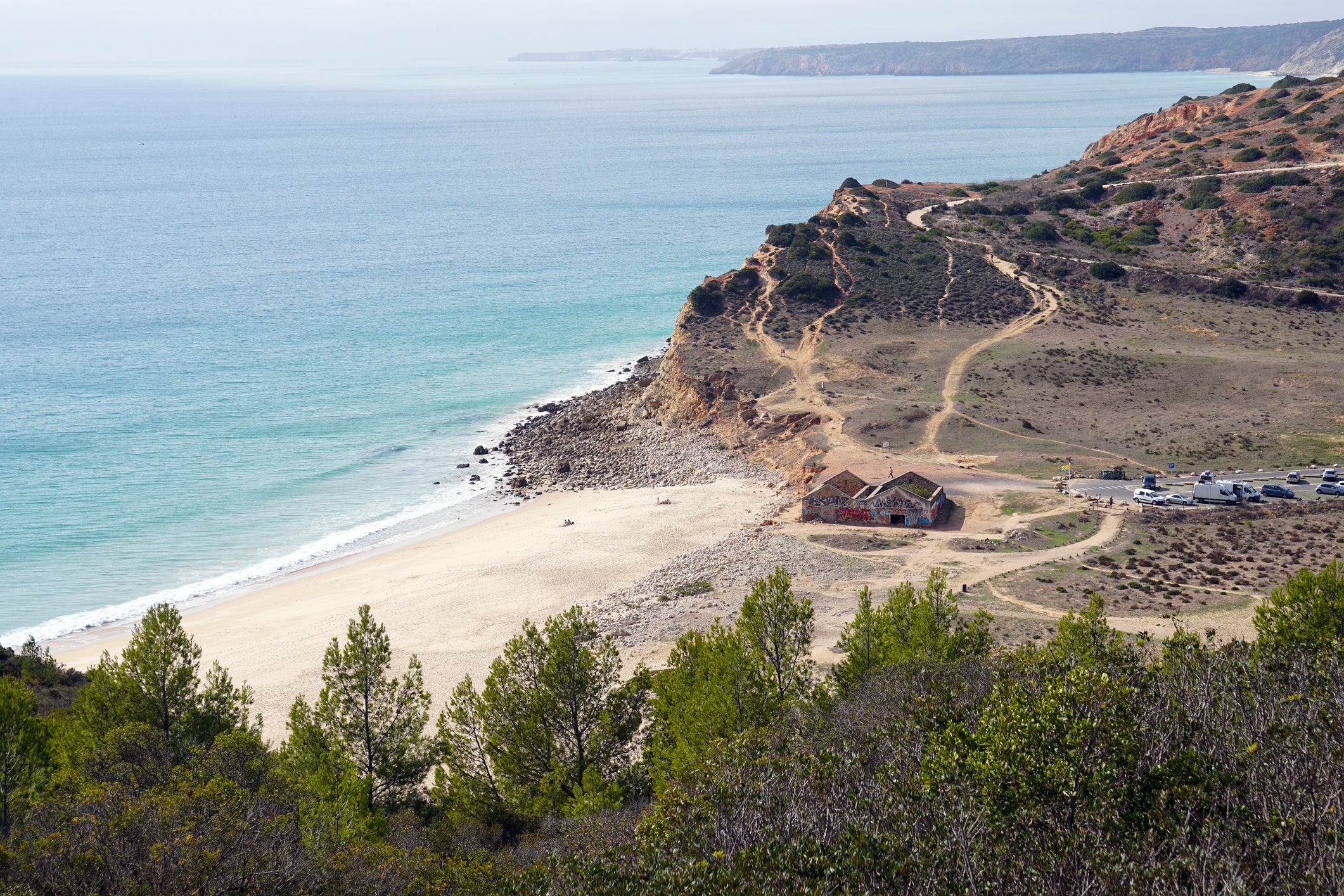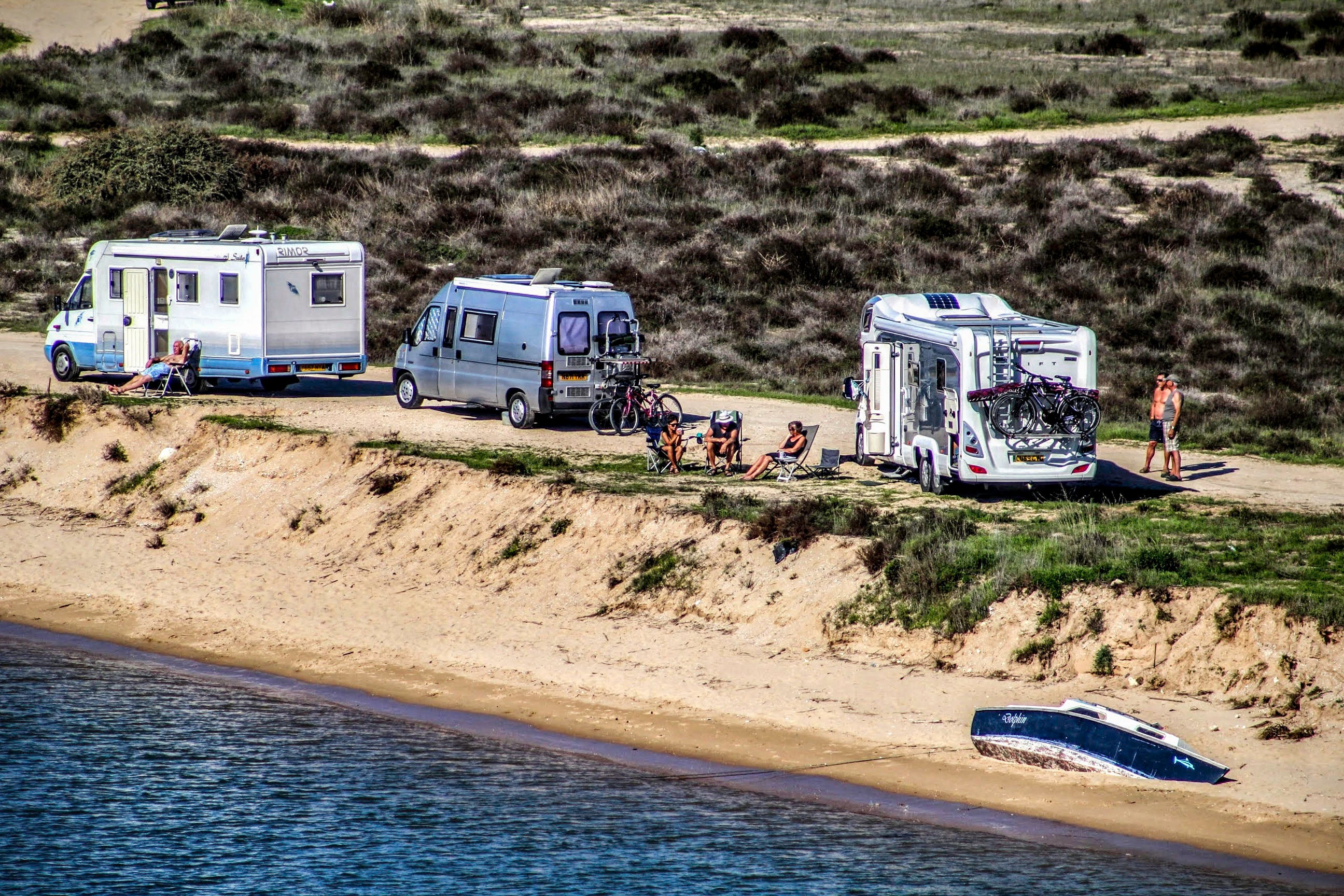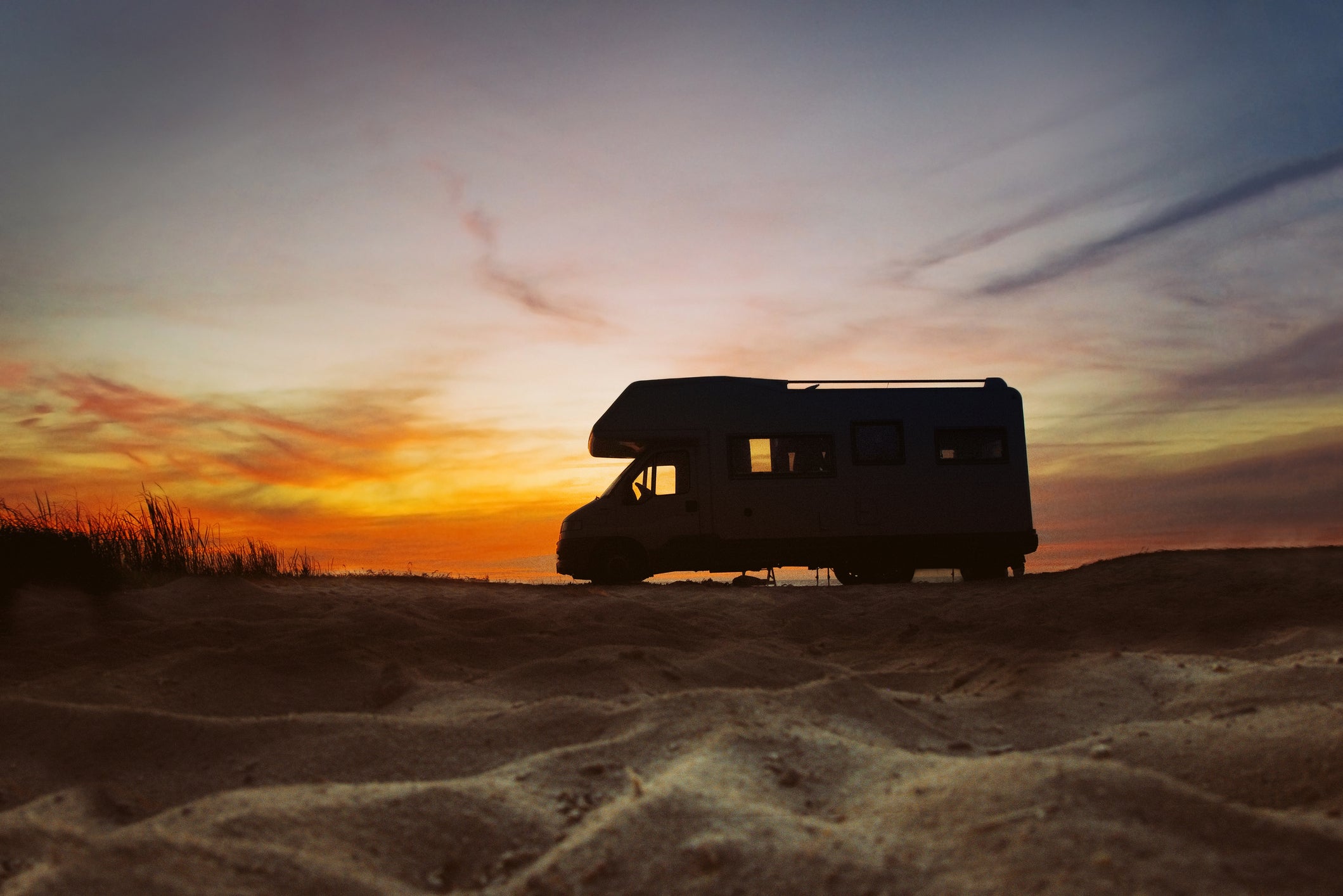How Portugal killed off wild camping
For the second year in a row, Florian Sturm set off in his motorhome to live and work from the Algarve for a couple of months. Two years – and two very different experiences

Last October, I gave up my apartment in Leipzig, Germany. I had been living there for the past five years and loved the place. I still love the city. But I also fell in love with the idea of living in a motorhome: exploring Europe, working remotely and finding stories wherever my curiosity would take me.
And so I left Leipzig on Halloween and set off through France and Spain to Portugal. I entered the country in the north, quickly made for the coast and then took my time driving down to the Algarve, on the southern coast.
I was headed for a particular cliff near a little coastal village called Monte Clerigo. I knew the place from previous visits and it has become my favourite spot. On this cliff are a bunch of gravel car parking spaces, most of them less than 10 metres away from rugged cliffs that drop straight down to the ocean. Staying in a motorhome there feels like being spoiled in a drive-in Imax cinema with unobstructed views of the vastness of the Atlantic Ocean.
And because this million-dollar-view comes for free – it’s a popular tourist location in the southwest Alentejo and Vicentine Coast Natural Park, but not part of an official campsite – I wasn’t the only one spending a couple of days there.
That was in October 2019.
Fast forward 12 months. With every kilometre that I drew closer to those cliffs, my excitement grew. I knew the area by now; the steep, curvy road leading down into the village before slowly climbing up the cliff (requiring a good rev of the engine) to reach those precious parking spots.
But when I finally arrived one evening in early November last year, I was stunned. Right at the entrance was a big sign: no motorhomes allowed.
I was crushed. I had driven more than 3,300km to get here.
Before I left Germany, friends living in the Algarve warned me that the atmosphere in Portugal towards campervans had drastically changed during 2020. Motorhomes and campervans have been banned from many beaches and even car parks in the Algarve, and the Portuguese police are patrolling those areas more strictly now. A few people have even formed what seem like citizen militia groups to basically tell campers to go home. Some of these people – and it’s not clear if they are locals or expats living in the Algarve or tourism companies worried about their businesses – only throw words at tourists; others swap words for rocks and aim for camping cars.

What has happened to this area, previously one of Europe’s most popular camping destinations? It’s suffering from its own success. Pre-pandemic, the Portuguese Tourism Board recorded rising tourist numbers for several years in a row, with many visitors coming from all over Europe in their motorhomes or caravans.
I’m one of them, and I cherish the Algarve for all the same reasons: its rugged cliffs and sandy beaches; the calm and clear waters of the south coast; the rough west coast which attracts daily surfers; the warm winter climate; and the relatively low cost of living.
There’s another reason too. Portugal has become known for wild camping: instead of checking in at a campsite, you park your van close to a secluded bay or overlooking a cliff and fall asleep to the rhythmic beat of the Atlantic waves, waking up at sunrise ready to go surfing. Can you pack more freedom, independence and adventure into one night – and for free, as well?
As of mid-2019, Portugal had 240 campsites, with a combined capacity for 191,300 guests – of which the campsites of the Algarve can accommodate less than 10 per cent (17,600). Yet the regional coordination and development office (CCDR) recorded 120,000 campervans and motorhomes entering the Algarve in 2017. Today, this number is likely to be even higher due to the Covid-19 pandemic, with this form of accommodation providing a good way to socially distance while travelling.
“Many of the people who couldn’t fly to Bali, Sri Lanka or Costa Rica for the holidays came to us for camping,” says Joaquim Lourenco, who runs two campsites and acts as a director of the Association of Camping Sites in the Alentejo and Algarve (APCAA). Local residents, as well as shop- and restaurant-owners of the surfing hotspot Sagres, also speak of at least double the number of tourists staying in and around the city in November and December of 2020 in comparison to the same time the previous year. Lourenco estimates that 90 per cent of the camping tourists in the Algarve go “wild” – despite the fact that this has been banned in natural reserves such as the southwest Alentejo and Vicentine Coast Natural Park since 2012.
Back in 2019, I was one of those not abiding by the law – and I was not alone. Apps such as Park4Night and others help thousands of campers find those pristine, hidden spots in the middle of the wilderness. As a result, many of them are neither pristine nor hidden. “If things continue as unregulated as before, we will not be able to adequately protect the nature park here,” Lourenco says.

Especially in southern Portugal, parking spaces on the beaches and coast are occupied by camping tourists, so that locals who come by to walk, surf or fish are lucky to find a spot. If they do, there’s often rubbish, faeces and used toilet paper lying around. It isn’t only foreign tourists who are to blame – Portuguese “vanlifers” and day tourists also play their part.
The problem of wild campers isn’t new in Portugal, but up until a few months ago, they have been tolerated. The fact that 2020 saw such an increase in number, in combination with the pandemic situation where locals are bound to their surrounding area while most tourists can travel freely, has resulted in a tense situation.
As of January 2021, a lot has changed. It is now illegal to spend time in your campervan, caravan or motorhome between 9pm and 7am anywhere in the entire country – unless the car is parked in a designated camping area, like a campsite or an officially recognised parking spot. “We wanted to create a tool which makes it easier for the police to prevent pollution of the environment and overcrowding of parking spaces due to the increasing numbers of wild campers,” says Marco Reinaldo Henriques of the National Republican Guard in Faro. The authorities can now also collect fines on the spot.
This new regulation sent shockwaves through the camping community. Many of the places I parked in in 2019 are now deserted. Not everybody agrees with the new law, however. Sandra Santos, a lawyer who’s also an avid camping fan, told me: “This law as it stands is an attack on our freedom. There is no similar ban in any country in the European Union.” She has already filed a petition with the government to get the law changed.
I understand her frustration. Right now, I could get fined for stowing groceries in my motorhome while being parked in front of a supermarket when I go shopping after 9pm; or when I drive long distances and need to rest for a bit in a service station at night.
However, I can also understand the authorities. Trashing pristine spots in natural parks, emptying your campervan toilet into the bushes, staying at the same spot for weeks on end – that’s also wrong.
Debates are ongoing across the country to figure out if and how the law can be changed. Lourenco suggests differentiating between three zones (nature parks and coastal regions, tourist hotspots, the rest of the country) where different measures could be put in place. Santos sees two ways to solve the pollution problem: allowing local authorities to forbid wild camping in protected areas, or generally prohibiting certain actions such as extending the awning in a car park, unloading water or having a barbecue in a car park.
I’ve set up my base at an eco campsite in the coastal village of Salema. It’s a fantastic spot that doesn’t feel like your average caravan park. Instead of neatly cut grass in perfectly rectangular spots which are all the same size and fenced-off from each other by little hedges, the mountainous area is left as natural as possible. You park wherever you want – in between a group of trees, on a little plateau or next to the river running through the valley of the campsite. This is as close to wild camping as you’ll get in Portugal for a while.
Join our commenting forum
Join thought-provoking conversations, follow other Independent readers and see their replies
Comments